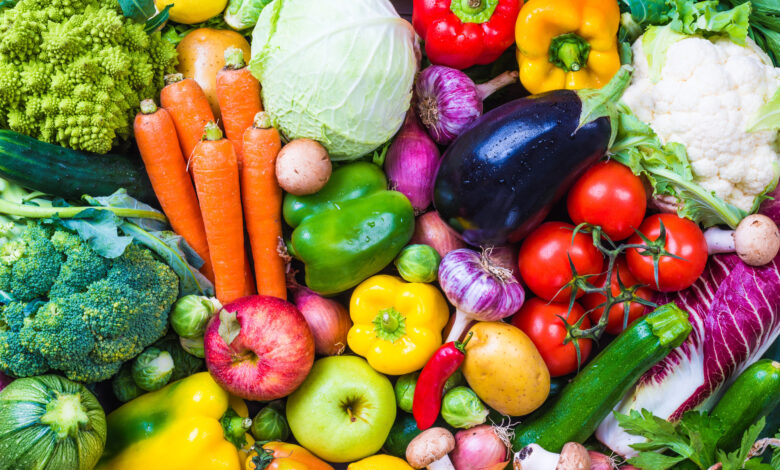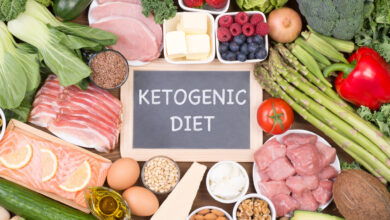Vegan and Vegetarian: What’s the Difference?

Everyone today seems to be going vegan or vegetarian. Celebrities, parents, and restaurants are saying goodbye to meat. But with all the confusion over vegan and vegetarian diets, it’s hard to know what the differences are between these diets, and if you can live on only one or the other.
So, what’s the difference between being a vegetarian and going vegan? Are the health concerns the same, and what can you expect from your body if you start either diet?
Here is an in-depth guide on what you need to know before you choose veganism or vegetarianism for yourself.
What is Being Vegan?
A vegan is someone who does not eat or use animal products. This includes not eating:
- meat
- poultry
- fish
- dairy
- eggs
- honey
They also don’t wear:
- leather
- wool
- silk
Vegans also do not use products that have been tested on animals or that contain animal ingredients, such as some:
- soaps
- cosmetics
- candles
Some people choose to be vegan for ethical reasons, as they believe it is wrong to harm or kill animals. Others may be vegan for health reasons, as a vegan diet can be lower in saturated fat and cholesterol and higher in fiber and antioxidants.
Some people may also be drawn to veganism for environmental reasons, as a vegan lifestyle can produce fewer greenhouse gases than a non-vegan lifestyle. Whatever the reason, being vegan is a personal choice that comes with many benefits.
What is Being Vegetarian?
A vegetarian is someone who does not eat meat, poultry, or fish. They may choose to eat eggs, dairy, and other animal products. Some vegetarians also enjoy honey.
Some people simply don’t enjoy the taste of meat. Vegetarians typically eat a lot of:
- fruits
- vegetables
- legumes
- grains
There are many delicious vegetarian recipes available, so it is easy to make tasty and nutritious meals without meat.
There are many personal reasons why people may choose to be vegetarian. For some, it is a moral choice based on respect for animals. Others may choose vegetarianism for health reasons.
Whatever the reason, vegetarianism is a personal decision that should be respected. Those who choose to be vegetarian should not be made to feel like they are somehow lesser than those who choose to eat meat. Vegetarianism is a legitimate healthy lifestyle choice that comes with many benefits.
Benefits of Veganism
Veganism has many benefits that are often overlooked. One significant benefit is the impact it has on the environment. The raising of livestock is a leading cause of climate change, and by cutting out animal products, vegans can help reduce their carbon footprint.
Veganism is also much more efficient in terms of land and water use than animal agriculture. In addition, a plant-based diet is healthier than one that includes meat and dairy. Vegans tend to have lower rates of:
- heart disease
- obesity
- cancer
- type-2 diabetes
Overall, veganism is environmentally sustainable and humane. To enjoy the benefits of veganism, you may want to try a vegan subscription box.
Benefits of Vegetarianism
There are several health benefits associated with vegetarianism. Studies have shown that vegetarians tend to have lower rates of heart disease, obesity, and high blood pressure. They also tend to have lower rates of certain types of cancer.
Additionally, vegetarianism is a more environmentally sustainable way of eating. The production of meat requires a great deal of resources, including water, land, and energy. Producing vegetables requires far fewer resources.
If more people chose to eat vegetables instead of meat, it would have a positive impact on the environment. Fewer animals would need to be slaughtered, and there would be less pollution and greenhouse gas emissions from livestock farms.
What Makes Vegan and Vegetarian Different?
By reading the definitions of both above, you can already spot what makes both different from each other. But to sum it all up, here’s what you have to know.
There are a few key things that distinguish vegan and vegetarian diets. For starters, vegetarians do not eat any animal flesh, including poultry, fish, and red meat. Vegans, on the other hand, abstain from all animal products, including dairy, eggs, and honey.
This means that a vegan diet is generally more restrictive than a vegetarian diet. Additionally, ethical considerations often play a role in vegan and vegetarian diets. For some people, avoiding all animal products is a way of showing respect for animal rights.
Others adopt a vegan or vegetarian diet for environmental reasons, as animal agriculture can have a significant impact on the planet.
What Health Enthusiasts Say About Vegan and Vegetarian
There is a lot of debate in the health community about the benefits of a vegan or vegetarian diet. Some health enthusiasts claim that these diets are the best way to improve your health, while others claim that they are not necessary for good health.
However, there is no single answer. Some people may thrive on a vegan or vegetarian diet, while others may not. Ultimately, it is up to each individual to decide what type of diet is best for their health.
Most health enthusiasts say that vegan and vegetarian diets are healthy and can help prevent certain chronic diseases. They also say that these diets can improve overall health and well-being. Many health enthusiasts recommend a vegan or vegetarian diet for its many health benefits.
Consider Becoming a Vegan and Vegetarian
Consider becoming vegan and vegetarian to improve your health and the environment. Animals raised for food often suffer in cramped, filthy conditions and are fed antibiotics and hormones. A plant-based diet can reduce your risk of heart disease, cancer, and other chronic diseases.
For more reads aside from this basic vegetarian and vegan guide, feel free to visit our blog page.





